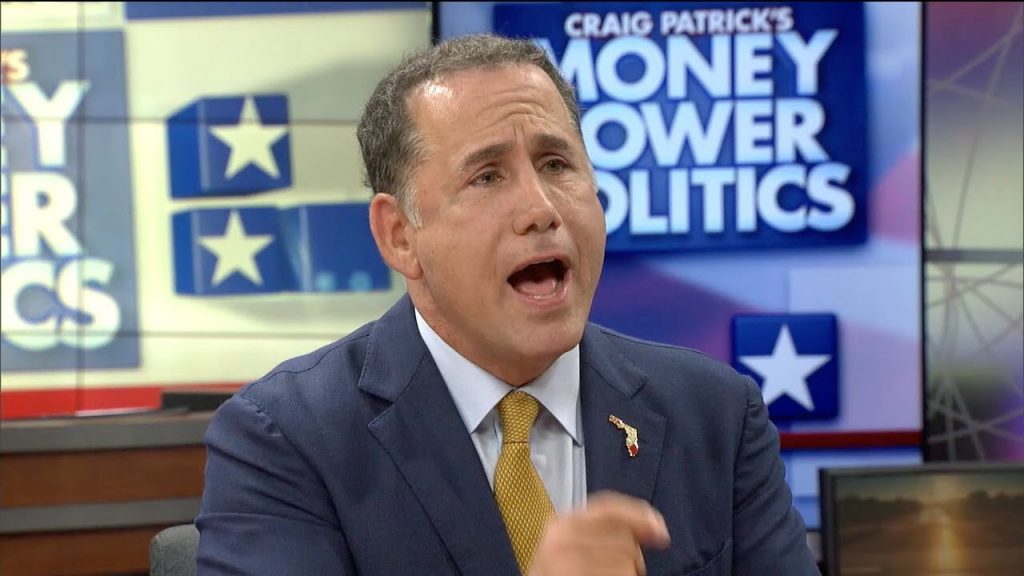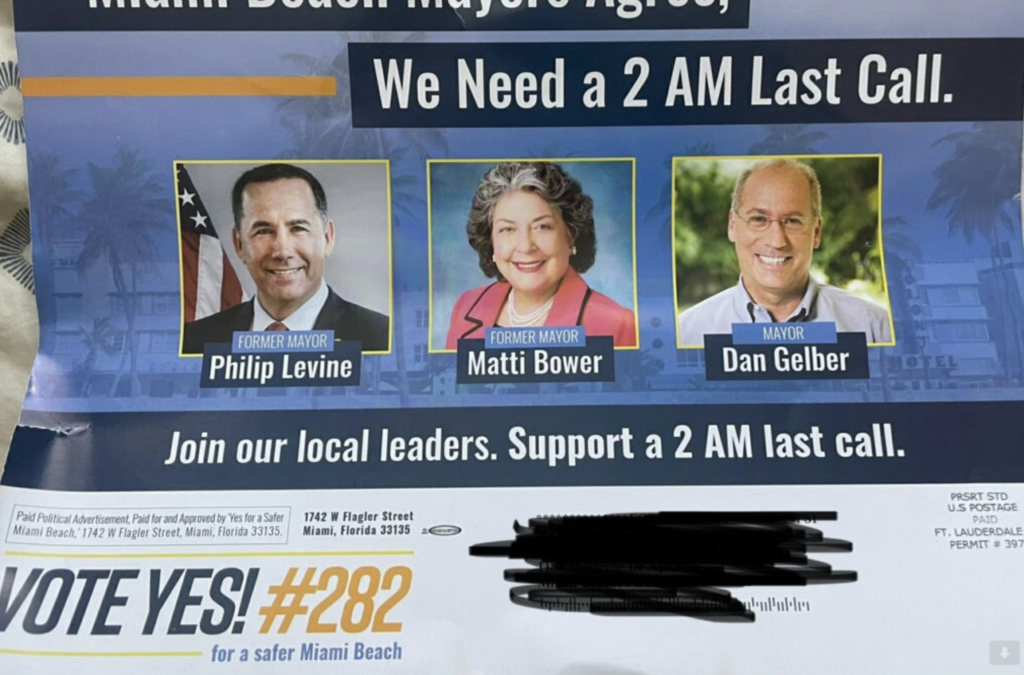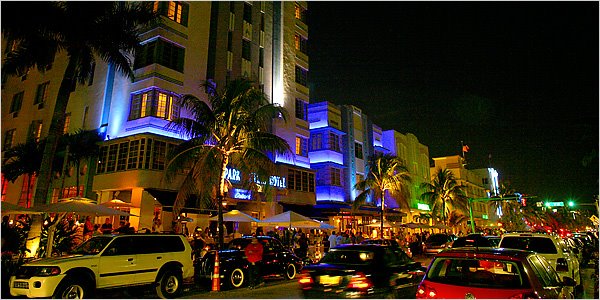Miami Beach voters have a familiar straw ballot question to answer before Nov. 2: Do they want to ban alcohol sales in South Beach after 2 AM?
It’s the same question voters solidly rejected in 2017, by a very comfortable 65% of the vote. Sort of a mandate. So why’s it coming back? That’s a much better question.
Framing it as a public safety issue, the proponents say that the city should roll back alcohol sales and consumption from 5 AM to 2 AM at hotels, bars and businesses citywide to cut down on violent crime. Like those three hours are going to make a difference.

But it’s really all about real estate. If the businesses along Ocean Drive fail, developers can buy up the properties at bargain prices and build condos, like they are doing with North Beach’s Ocean Terrace. They will turn South Beach from an entertainment district to a luxury high-rise district.
Why do you think former Mayor Philip Levine — who was the first to try this — has come out of the hole he’s been hiding in since his gubernatorial loss to promote a yes vote? The millionaire mayor knows a deal when he sees one.
Know more: Miami Beach is late with study on impact of alcohol ban on referendum
“There comes a time in life when everyone and everything must grow up,” Levine writes in an email blast paid for by the Yes For A Safer Miami Beach political action committee. “Whether it be teenagers assuming adulthood responsibilities or cities that realize their once ‘anything goes’ party atmosphere has become a major liability, instead of an asset.”
Then he got preachy.
“It is said that sometimes God whispers, and sometimes God yells. After the horrific murder last month of a father protecting his baby boy at an Ocean Drive cafe, I think we can all agree that God was whispering loudly to us.”

Except for one thing: The murder of that father protecting his baby boy at an Ocean Drive cafe happened in broad daylight, at 6:30 p.m., during dinner with the family. How will a 2 AM bar ban help that?
By driving the post 2 AM crowds to private and illegal AirBnB house parties or venues that are “exempted” from the rule?
Because that’s another thing: The way it’s proposed, the ban is applied to every business in the city, but the commission would have the ability to bestow “exemptions” on whoever or whatever lucky business they choose. There’s no criteria on how those exemptions (read: gifts) would be granted, which means they’ll become bargaining chips for campaign contributions, or gifts for big donors.
Know more: Philip Levine’s PAC started flooding after he got a liquor ban on the ballot
Critics say the city is trying to avoid the real fix, which would be to hire more police officers and increase beat operations and visibility in key places. It seems like the logical thing to do.
But that won’t provide the opportunity — ka-ching — that a 2 AM bar ban does for speculators. The measure, however, would hurt businesses that are only starting to recover from the COVID-19 pandemic’s economic fallout.
Jobs would be lost. Property owners would be forced to sell their Art Deco and historic hotels. Developers would accumulate lots and pitch big mixed-use residential complexes with names like Brisas Atlantico.
“That’s what I’m afraid of,” said former Mayor Matti Bower, whose name and photo are on a mailer endorsing the referendum. She says she once did think it could be a good idea. But she was never enthusiastic, Bower told Ladra, and now she’s not so sure.

“I don’t think that’s what needs to be done. I think there is another way to address the situation without affecting the historic nature of Miami Beach and making it just like every place else,” Bower said.
Because this is not about safety. This is about real estate.

